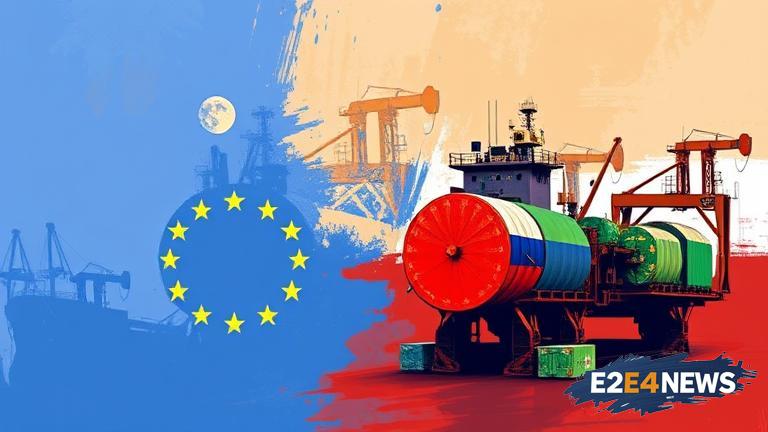India has called out the United States and the European Union for their hypocrisy in criticizing India’s imports of Russian oil, while themselves continuing to import energy from Russia. The Indian government has refused to back down on its decision to continue importing Russian oil, despite threats of tariffs from US President Donald Trump. India’s stance is seen as a significant challenge to the US and EU’s efforts to isolate Russia economically. The US and EU have imposed sanctions on Russia in response to its actions in Ukraine, but India has maintained that it will not be swayed by these sanctions. India’s decision to continue importing Russian oil is driven by its need to secure affordable energy for its growing economy. The country is the third-largest consumer of oil in the world and is heavily dependent on imports to meet its energy needs. The US and EU have been critical of India’s decision, with some officials accusing India of undermining the international effort to isolate Russia. However, India has pointed out that the US and EU themselves continue to import energy from Russia, despite their public criticism of India’s actions. This has led to accusations of hypocrisy and double standards. The Indian government has also argued that it has a long-standing relationship with Russia and that its energy imports are not driven by political considerations. The US has threatened to impose tariffs on Indian goods if it does not comply with its demands to stop importing Russian oil. However, India has refused to back down, citing its own economic interests and the need to protect its economy. The standoff between India and the US and EU has significant implications for global energy markets and international relations. It highlights the challenges of navigating complex geopolitical relationships and the need for countries to balance their economic and strategic interests. The US and EU have been trying to persuade India to reduce its dependence on Russian oil and to diversify its energy imports. However, India has maintained that it will not be dictated to by other countries and that it will make its own decisions about its energy imports. The Indian government has also pointed out that it has a diverse range of energy sources and that it is not dependent on any one country for its energy needs. Despite the pressure from the US and EU, India is likely to continue importing Russian oil, at least in the short term. The country’s energy needs are too great, and its economy is too dependent on affordable energy, for it to consider alternative sources. The US and EU will need to find a way to balance their own economic and strategic interests with their desire to isolate Russia economically. This may involve finding alternative sources of energy for India and other countries that are currently dependent on Russian oil. The situation highlights the complex and interconnected nature of global energy markets and the need for countries to work together to address common challenges. The US and EU will need to engage in diplomatic efforts to persuade India and other countries to reduce their dependence on Russian oil. However, this will require a nuanced and sensitive approach that takes into account the economic and strategic interests of all parties involved. The outcome of this standoff will have significant implications for global energy markets and international relations, and will be closely watched by countries around the world.
